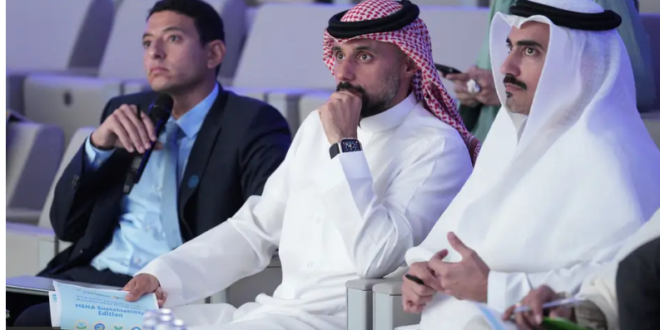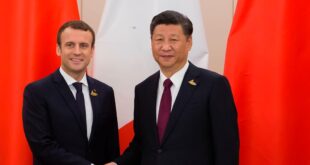Muhamad yehia
Venture capital companies are reporting renewed interest in Egyptian startups after a difficult few years for the country’s tech entrepreneurs.
Emirati and Saudi investors are leading the return, say VC experts, after record-high inflation and a prolonged foreign exchange crisis dented deal-making.
Since the Egyptian authorities floated the pound in March and the economy has shown signs of improvement, appetite appears to be growing again
“With the stabilisation of the currency earlier this year and the renewed influx of FDI [foreign direct investment] and foreign interest, there’s a lot of renewed interest in the market,” says Dina El Shenoufy, chief investment officer at Flat6Labs, a venture capital company in Cairo.
Investors from the Gulf account for most of this interest, she says.
Egypt’s startups have raised $83 million in the first half of this year, down from $289 million in the first six months of 2023.
Prince Khaled bin Alwaleed bin Talal Al Saud, founder and CEO of KBW Ventures, is one of the Gulf investors who has taken an interest in Egypt. The Saudi entrepreneur has invested in NoorNation, which produces technology that can deliver water and electricity to isolated communities.
Egyptian business confidence improves but pessimism remains
Egypt confronts sell-off of more state assets
Egypt’s business activity rises as inflation pressure falls
“This is the first startup from Egypt that we have invested in,” says Prince Khaled, who adds that he looked at potential investments in the country for the past five to six years before NoorNation caught his eye.
Flat6Labs plans to launch an $85 million Africa seed fund this year. Most of it is weighted towards North Africa, with half of the total earmarked for Egypt.
“In terms of the resilience of the VC [market] in Egypt at large, I think that’s going to come back,” El Shenoufy says. “I don’t think the need for innovation is going to dry up any time soon.”
However, the exchange rate difficulties in Egypt, which made it challenging for companies to repatriate funds, do concern some investors.
Karim Samra, founder and CEO of Changelabs, a entrepreneurial support organisation, says investors that are looking at Egyptian startups have an increased preference for those with customers outside the country.
“There’s a lot of pressure for all of these successful companies to expand more quickly to other markets,” Samra says.
MNT-Halan, a fintech that is one of three Egyptian-born “unicorns” – a startup valued at over $1 billion – is the latest company to announce an expansion into other markets. In a recent funding round it raised $157.5 million.
It has since expanded into Pakistan and has just announced its acquisition of Tam Finans, a Turkish commercial finance company with a loan book worth more than $300 million.
Samra says investors are increasingly hesitant to deploy funds to companies that only serve the Egyptian market.
“We need more local fund managers with the right background and expertise,” he says. “We need more qualified startups as well that are well run and understand how to raise money and how to deploy money.
“[International] VCs want to see locals putting their money into local companies. And if they don’t see that, they worry why the locals aren’t investing.”
Last week Changelabs announced a Fintech for Future accelerator programme to help 12 small to medium-sized Egyptian enterprises develop their products and raise funding.
Elsewhere the government is targeting record amounts of foreign direct investment this financial year, in an attempt to capitalise on the cheaper currency.
“I expect Egypt will continue to be at the top of the African market when it comes to VC investment,” Samra says. “I also expect that corporates and other actors that are currently on the sidelines will start investing more in VC.
“The question is, are we going to be able to absorb that capital by providing strong investment-ready startups?”
 موقع وجه أفريقيا موقع وجه أفريقيا هو موقع مهتم بمتابعة التطورات في القارة الأفريقية
موقع وجه أفريقيا موقع وجه أفريقيا هو موقع مهتم بمتابعة التطورات في القارة الأفريقية



